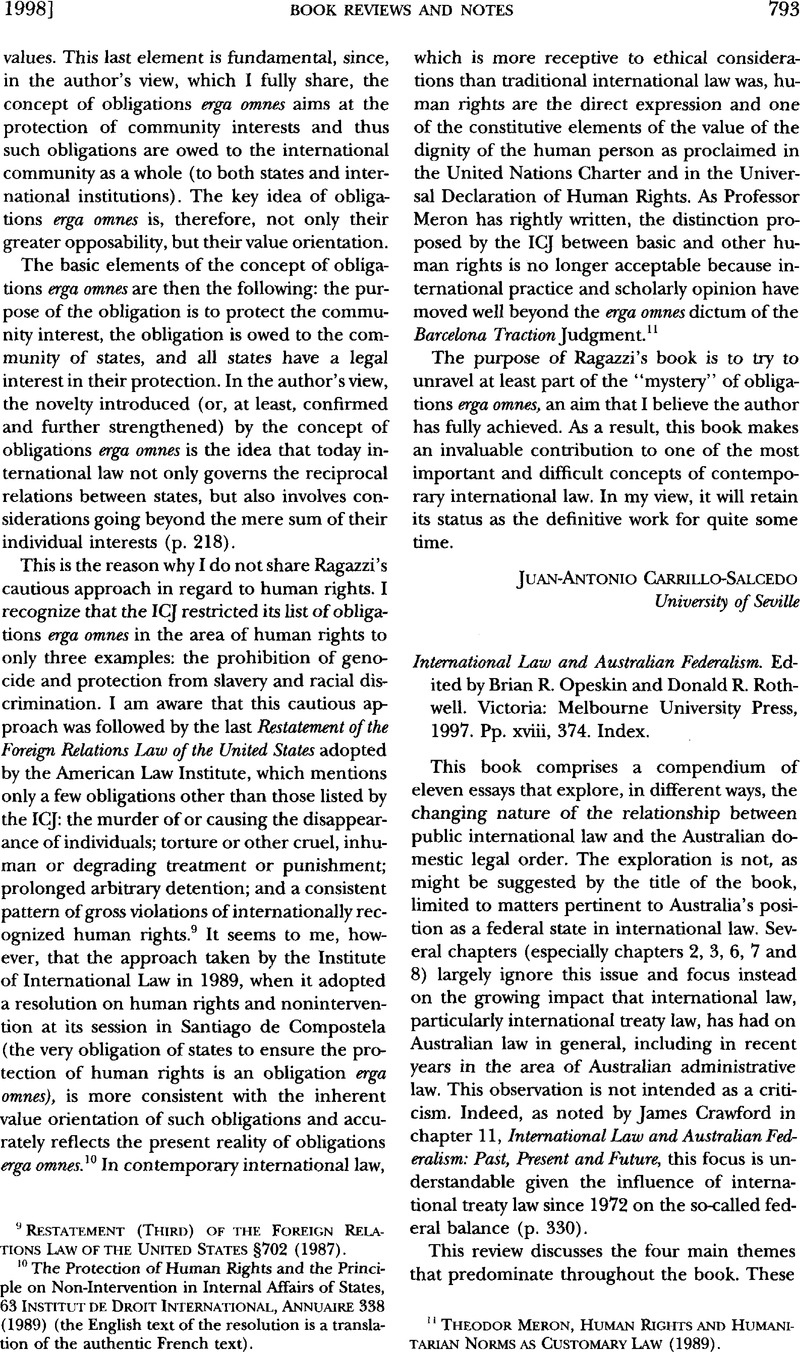No CrossRef data available.
Article contents
International Law and Australian Federalism. Edited by Brian R. Opeskin and Donald R. Rothwell. Victoria: Melbourne University Press, 1997. Pp. xviii, 374. Index.
Published online by Cambridge University Press: 27 February 2017
Abstract

- Type
- Book Reviews and Notes
- Information
- Copyright
- Copyright © American Society of International Law 1998
References
1 Minister for Immigration and Ethnic Affairs v. Teoh (1995) 183 C.L.R. 273. The case involved an application for review of an administrative decision to deport an alien (Teoh), who had a wife and children in Australia, following his conviction for the importation and possession of heroin. The High Court held that the 1989 Convention on the Rights of the Child, which had been ratified but not incorporated by legislation into Australian law, gave rise to a “legitimate expectation,” absent statutory or executive indications to the contrary, that decision makers would act in conformity with the Convention. This “legitimate expectation” did not, as such, incorporate the Convention but did give rise to a duty of procedural fairness in cases where the decision maker proposed to make a decision inconsistent with it, so that the person affected is required to be given notice of the decision maker's intention and an adequate opportunity to make representations concerning it.




